Hello and Happy New Year!
The Squeeze is back — with a few changes.
When I sent out my very first Squeeze, I wrote that I would spend some time being experimental and trying a few different formats. However, my first issue happened to cover just one story — the shuttering of APM’s In the Dark podcast — and I’ve somewhat accidentally continued that cadence ever since. You’ve seemed to enjoy it and most of the time, I’ve been able to find individual stories that work. That said, producing longer-form investigative reporting on a weekly basis — even when I’ve allowed myself a week off here or there — has hindered me from pursuing stories that I know require more time to thoughtfully produce. (It’s also resulted in some all-nighters, which has made me very cranky!)
With that in mind, I’ve decided to give myself the flexibility to take a bit longer if a story requires it. Going forward, in each issue, I’ll do my best to let you know when you’ll hear from me next. (See you next week!)
Also, this newsletter will now arrive on Fridays instead of Thursdays.
Moving on to the main event —
Back when Podcast Magazine entered the frame in February of 2020, I was intrigued. I had never heard of the magazine’s founder Steve Olsher, nor had anyone in my network of podcast friends and colleagues. One day no one knew his name, and the next he was hosting a launch party for his fancy new magazine at Podcast Movement, where he would be handing out print editions of its inaugural issue featuring Glynn Washington on the cover.
Wait — what?
It felt like the magazine came out of nowhere. And that’s actually kind of true.
“It took us less than a hundred days to get from the idea to launch,” Olsher told me when I reached him by phone a few weeks ago. “I was sitting in the audience at an event put on by [motivational speaker] Brendan Burchard. And I had this thought — why isn’t there a Rolling Stone for podcasts?”
Olsher immediately envisioned a glossy that could hold its own next to all the other slick magazines on the newsstand. His business partner liked the idea, so they got to work right away —buying the domain (“it wasn’t cheap but we could afford it”), designing the layout, booking interviews, etc.
Sounds like you were in a rush, I said.
“I’ve been an entrepreneur for thirty years,” he answered. “Speed wins.”
It’s funny because I remember having the same thought — if the music industry could have Rolling Stone, why couldn’t someone create the same thing for podcasts? But there were two crucial differences between my fantasy of a podcast magazine and Olsher’s real-life business plan. First, I didn’t think the public was ready for a magazine dedicated to podcasts — not yet, anyway. And second, Olsher’s business model was totally bananas.
“We didn’t — maybe we should have — but we never intended for [Podcast Magazine] to be its own independent entity,” Olsher revealed.
You see, Olsher wasn’t in the magazine business. And he wasn’t exactly in the podcast business either, aside from hosting a couple of shows. He was in the events business: trainings, seminars, inspirational self-helpy type stuff for business people. “A lot of our customers were coaches, authors and speakers who wanted to find ways to increase their revenue,” he told me. So Olsher and his team began selling courses on how to launch and monetize podcasts.
Olsher said that as he sat in the audience at the Burchard event, he realized that having a magazine would be a credibility booster. “It would make it easier to convince our customers that if they want to have a podcast, who better to learn from than us!”
One of the courses Olsher’s team created is called Profiting for Podcasts. According to its website, the program is based on “a set of advanced strategies and tactics” Olsher has tested “behind closed doors” and “mastered over the last 25 years.”
Here’s what you were promised to receive from the program when you enrolled in 2020:
So, to sum things up:
Podcast Magazine was not really about the magazine itself.
Instead, Podcast Magazine was set up as a customer acquisition channel for Olsher and his team’s other businesses. (To be fair, Olsher also said that he thought the magazine could work as a discovery channel for fans.)
As a result of this strategy, Olsher never put together a dedicated ad sales team to support the publication, nor did he initially pay editorial staff. “Frankly, they didn’t complain,” he recalled. “But eighteen months ago, we began paying them $150 per month. With their help, we’ve produced over 600 interviews.”
So instead of investing heavily in content, Podcast Magazine leadership invested heavily in marketing to its subscribers. To some — including me — it felt like we were being spammed. Here’s what a typical subscriber’s inbox looked like in October of 2020:
I remember feeling overwhelmed and puzzled by the sight of it all. Hadn’t I signed up for a magazine about podcasts? Why was I getting all this junk?
Podcast Magazine also began pitching subscribers on paying for in-magazine opportunities. Here’s copy from an email urging them to pay for inclusion in the magazine’s directory of podcasters:
Interestingly, the magazine’s aesthetic was starkly different from the promotional emails. It was glossy, shiny, professional-looking — exactly what Olsher had envisioned. Some A-list celebrities and genuinely well-respected podcasters graced the cover. “Having the name ‘podcast magazine’ allowed us to get into the room with people — there was really no reason Katie Couric and Paris Hilton should have been sitting down with me for a chat.”
But the point is that they did. And those slick celebrity covers began delivering thousands of subscriptions — and thus, email addresses (and thus, new potential customers) — to Podcast Magazine’s database (Olsher told me that the magazine now has 31,000 subscriptions). Of course, very few people were actually paying for their subscriptions — Olsher said “most” were free — but again, that wasn’t a concern, because the business hinged on events.
Enter the pandemic, which created some pretty massive problems with this business strategy. As the world shut down, the team pivoted to a virtual events model. It was still a viable business, but according to Olsher, the change “made it very difficult to bankroll the magazine.”
It’s clear from talking to Olsher that supporting the production of the magazine turned into a real slog. Perhaps that’s why, in March of 2021, Olsher began promoting “$BOLD Coin,” his very own crypto currency, to Podcast Magazine subscribers and the its followers on Clubhouse (Olsher told me that Mr. Bold was his DJ name “back in the day”).
Here’s a screenshot from one of the promotional emails for the crypto currency:
The impact of the pandemic could also explain why Podcast Magazine’s leadership began promoting a set of (yes, sea-creature-themed) NFTs.
But it’s definitely why Olsher ultimately decided he wanted out. “Producing the magazine is a monumental undertaking. It’s time for me to move in a different direction,” he explained.
Multiple sources told me that Olsher has been trying to offload the property for many months, possibly even a year (in a text, Olsher seemed to deny it). Regardless of whether that’s true, he’s certainly pulling out all the stops now. For example, in December, he pitched his own subscribers on the deal:
And he’s fallen all over himself trying to get as much attention as possible for the magazine’s final issue featuring The Daily Wire’s Ben Shapiro (alongside his business partner Jeremy Boreing), who caused a shitstorm when he made an appearance at Podcast Movement last August.
Olsher tweeted and retweeted this cover image relentlessly, often with captions clearly designed to stir up controversy. He posted multiple behind-the-scenes shots from the interview as well, tagging The Daily Wire founders and even people like Elon Musk and Jordan B. Peterson. At one point, he invited “#Woke folk” to suggest who should be on the magazine’s next cover, a disingenuous question at best, as he knew this would be the last issue of the magazine under his watch.
When I asked him to explain this strategy, he responded that Podcast Magazine “is a publication that lives and dies based on eyeballs and subscribers. We have used social media for the better part of our existence and there is nothing we have done that comes even close to the response we got after The Daily Wire issue. One way or the other, when we put Ben on the cover it attracted attention to the magazine.”
Sure — but is provoking controversy within the podcast community a strategic move when you’re trying to sell the product?
I guess we’ll find out.
As for his future plans, Olsher said he’s “not at liberty to say” what’s next for him, though he’s currently helping out with his wife’s new funeral home business.
Whatever happens, Olsher will land on his feet. I know this because he’s done it before. In fact, he’s changed careers so many times that he’s literally branded himself as “America’s Reinvention Expert” — a genius self-own, I must say.
The question is, what will he reinvent next?
That’s all for me this week!
Have a great weekend and I’ll see you next Friday.
Skye
Post Script:
Congratulations to Laura Mayer who sold her podcast Shameless Acquisition Target and got a new job! (If you missed my interview with Laura, you can find it here.

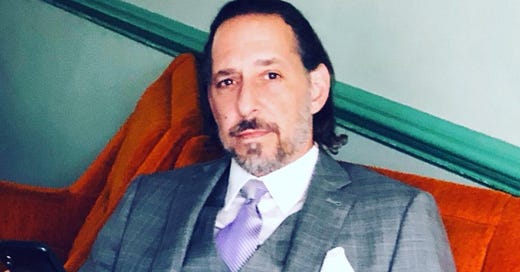


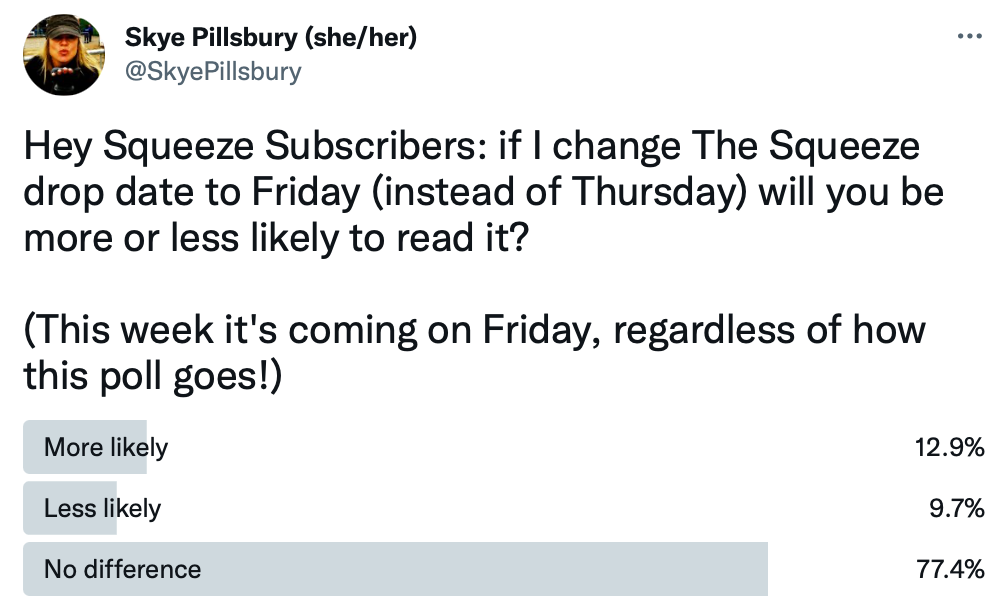
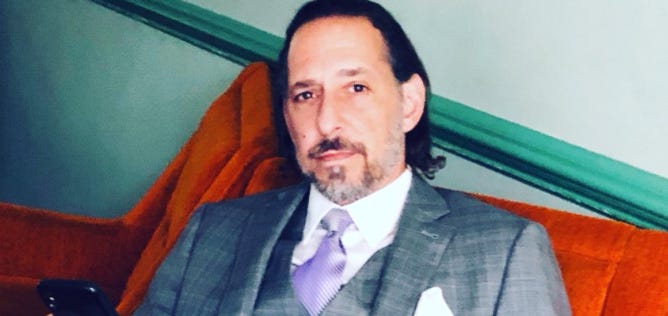
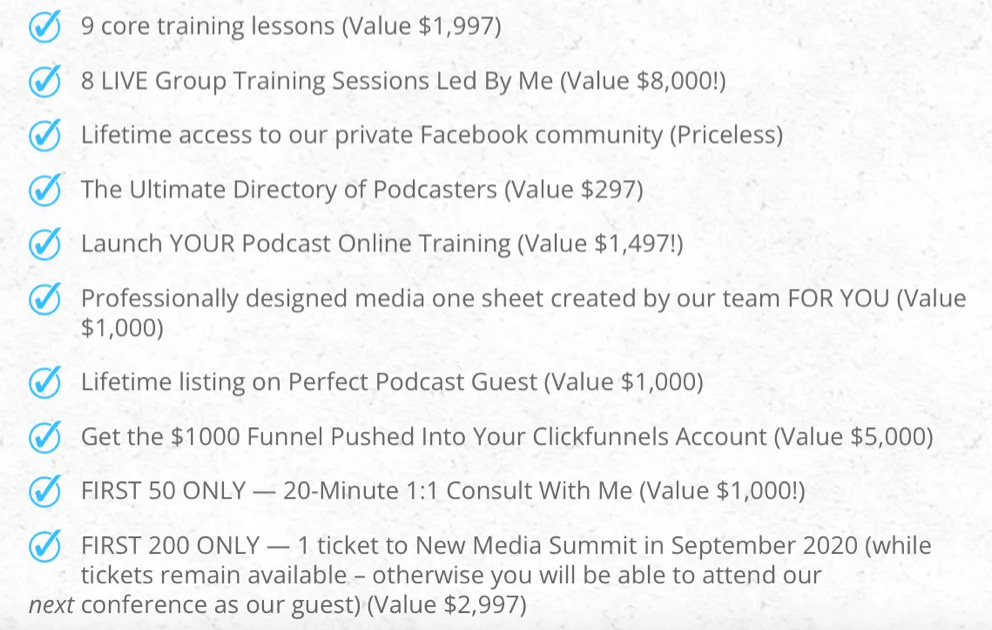

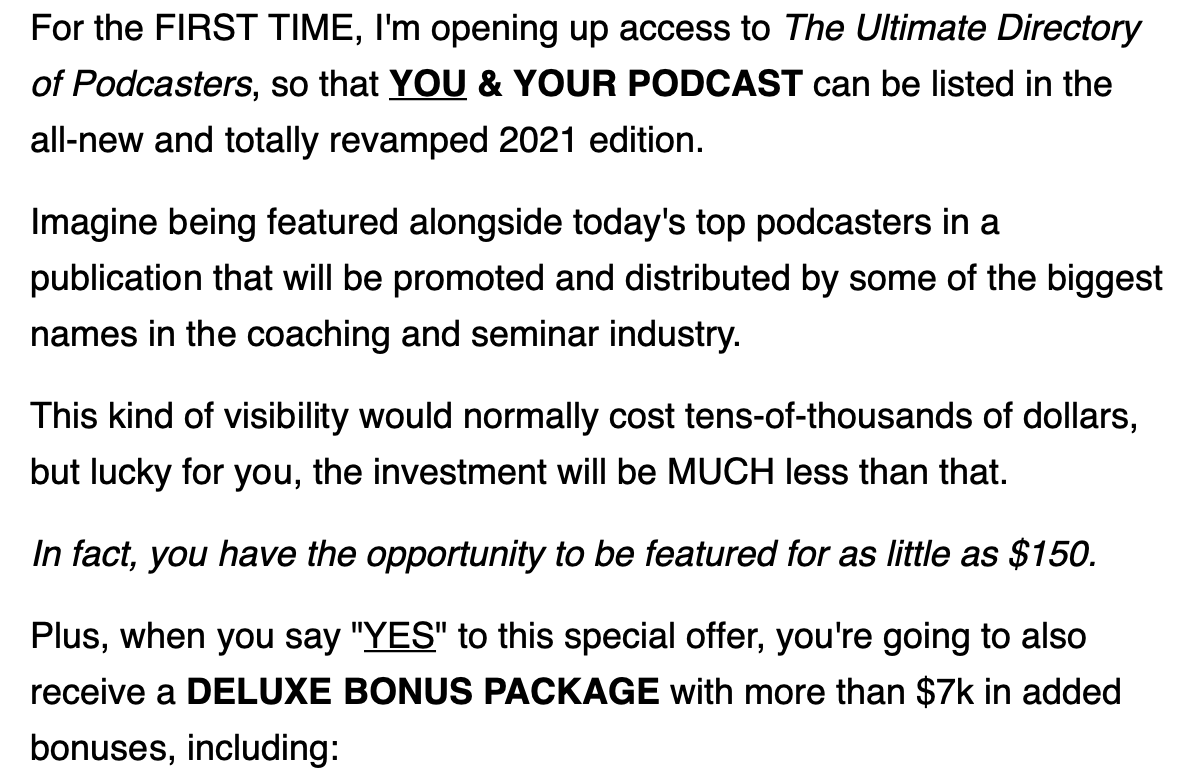
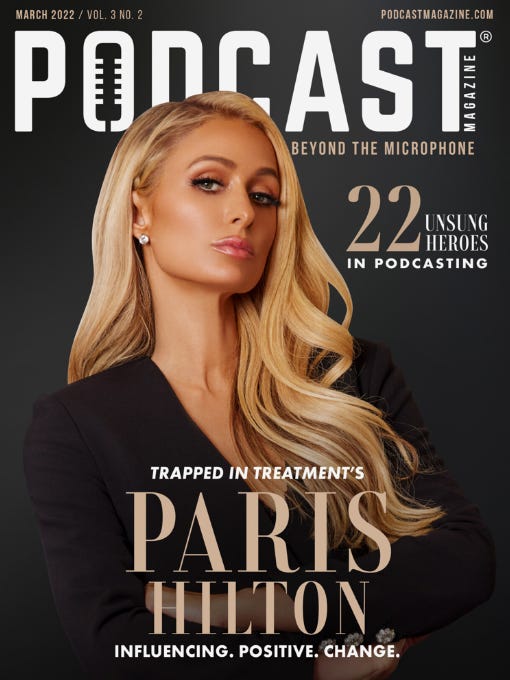
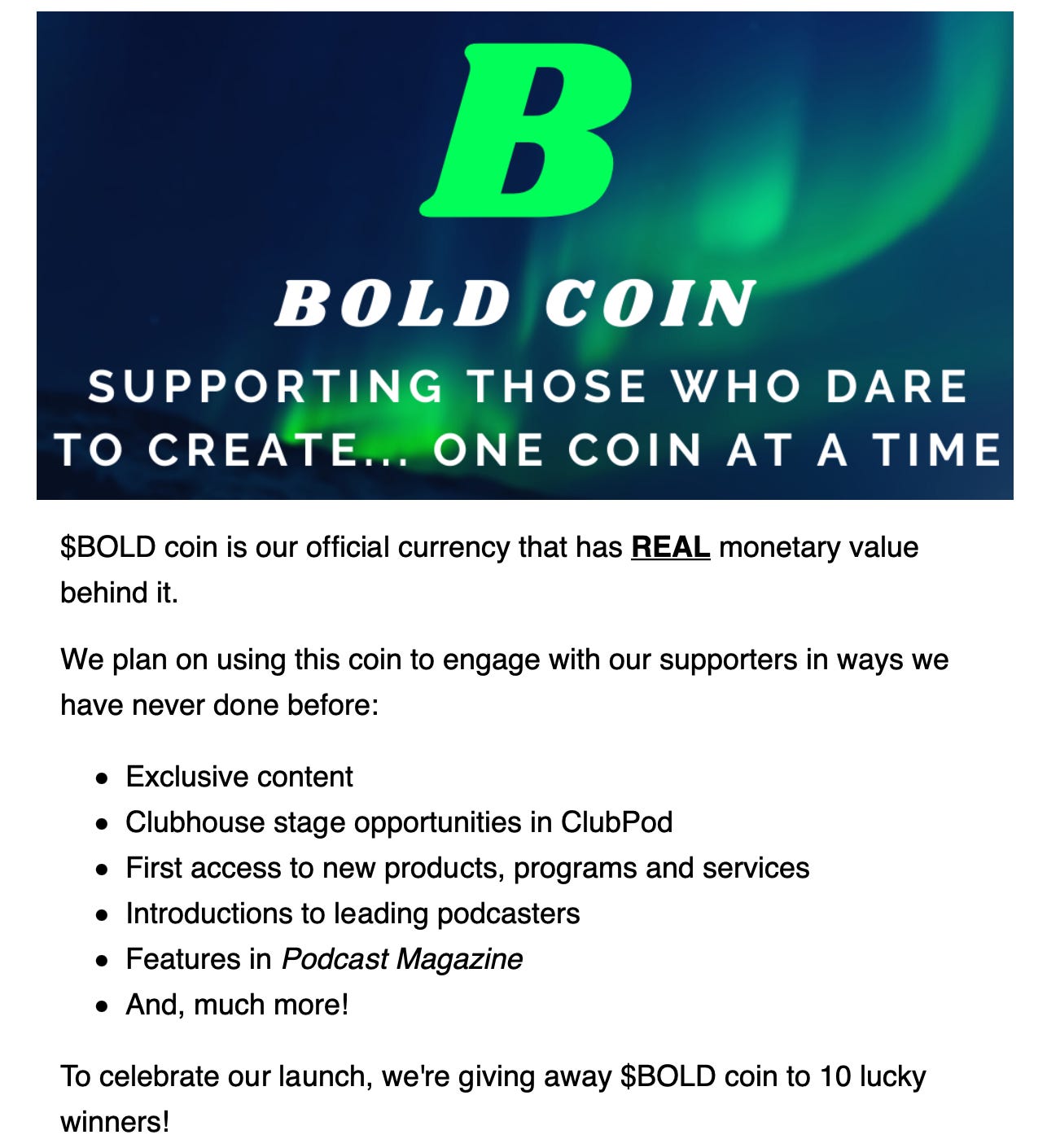
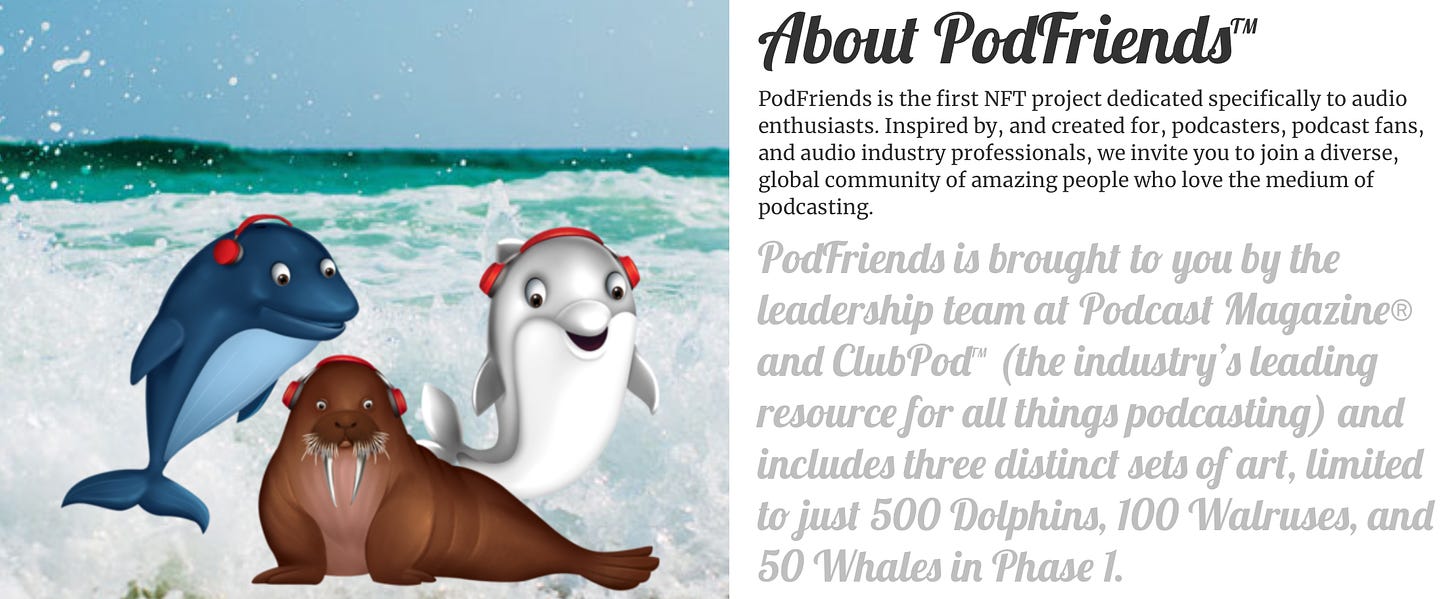
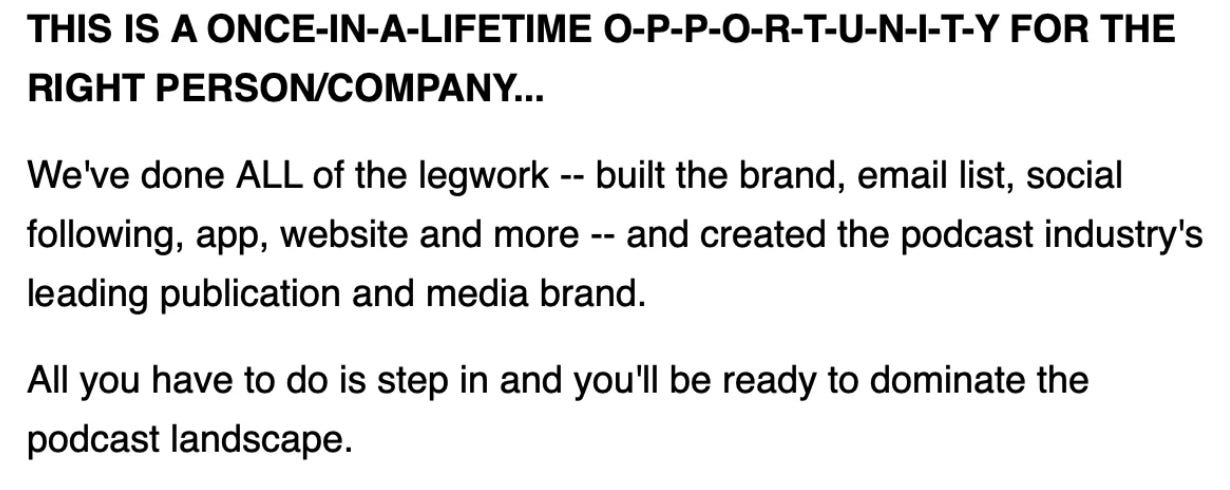
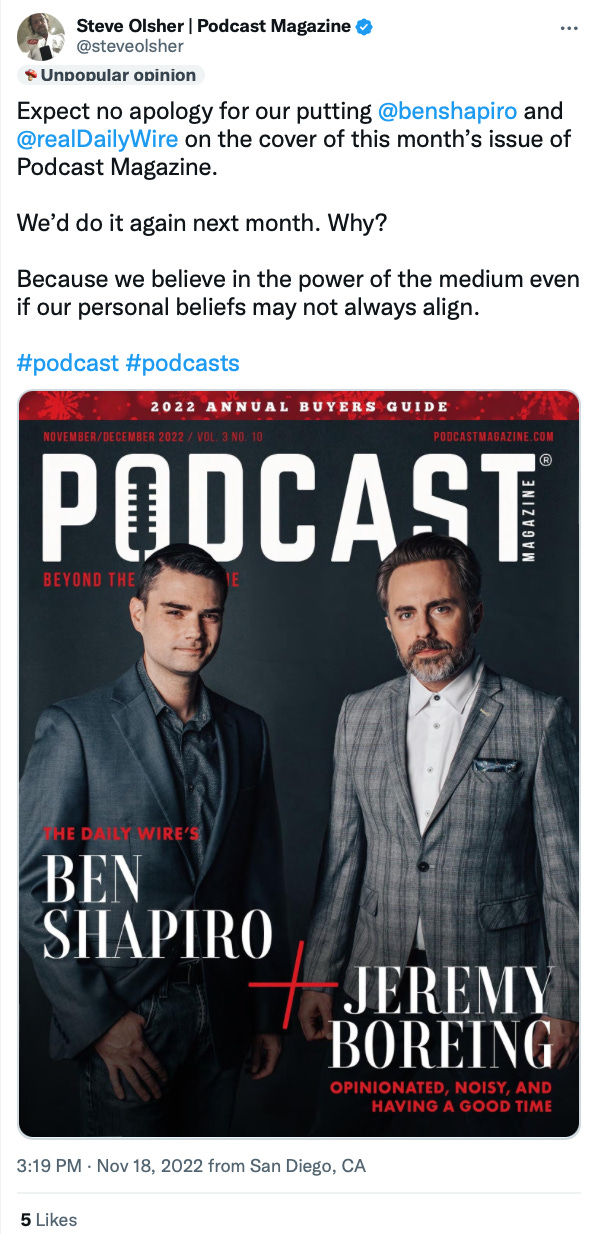

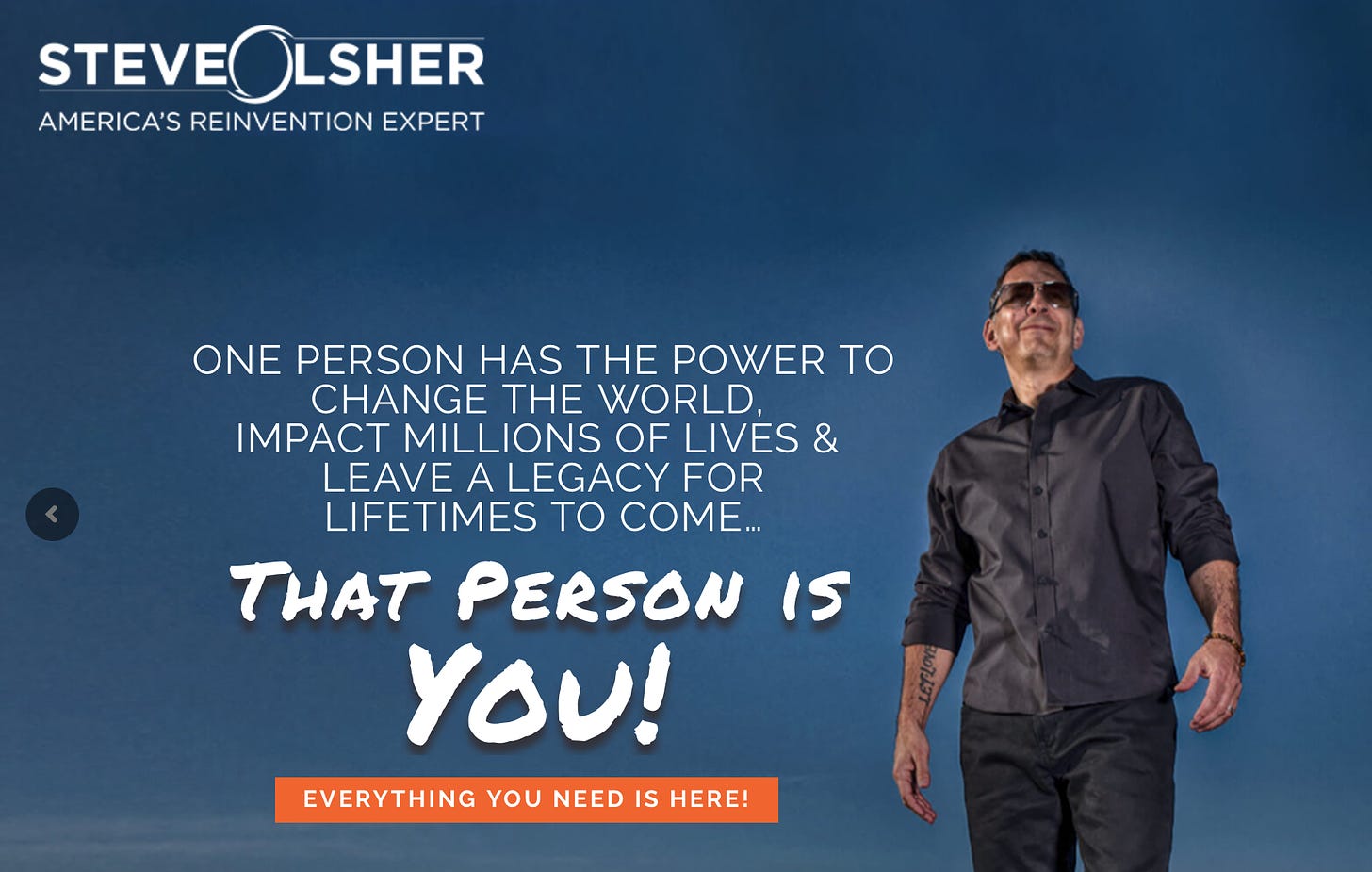

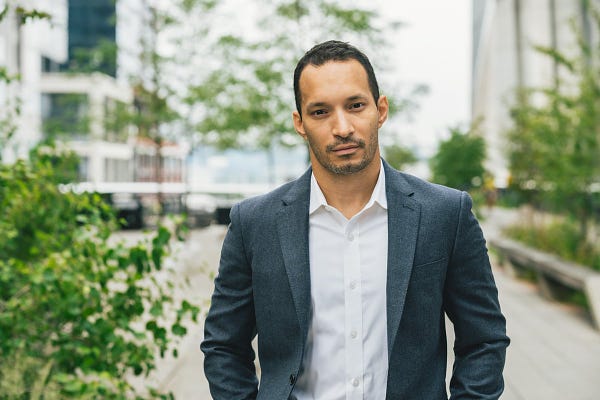
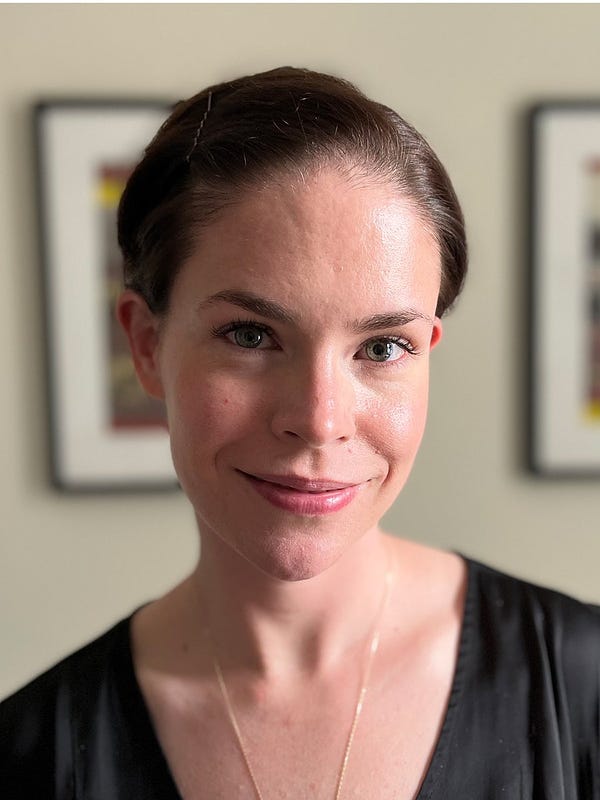
Hey Skye! Just came across this piece, thank you for the insights. Speaking of the podcasting magazines though, there’s another imprint magazine about podcasting coming soon—Good Tape. Have you heard of it? What do you think of it if you have? I’d be interested to learn your opinion on that in this newsletter (not affiliated with that magazine:)
It’s a shame that podcasting community doesn’t have (or has too few) outlets dedicated to podcasts, all really interesting stuff is covered in newsletters like yours haha
A great story of Mr. Bold and his successful pod magazine, I hope someone took his offer and will continue the pod magazine journey.